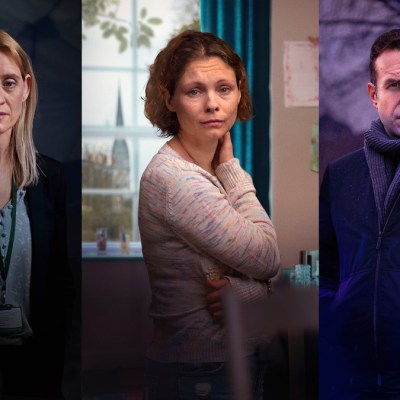The Salisbury Poisonings, Chernobyl and the Power of Truth-Telling in a Crisis
Chernobyl and The Salisbury Poisonings dramatise the vital role of truth-telling in real-world crises
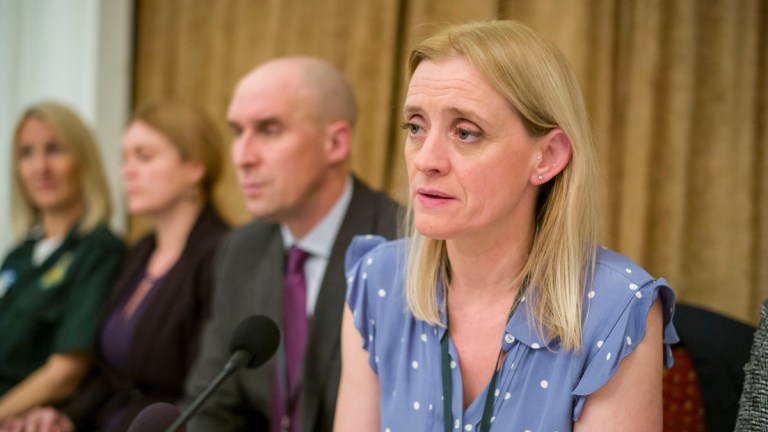
A nuclear power station and a bench outside Sainsbury’s aren’t locations equally given to disaster. Nor are the disasters befallen by each in HBO/Sky’s Chernobyl and the BBC’s The Salisbury Poisonings comparable in scale or context. One is an historical nuclear accident that killed between 31 (the official death toll) and half a million (a Ukrainian estimate), the other is a contemporary assassination attempt with a single fatality.
Airing with just a year between them, the two dramas feel more connected than they might with more distance. If you’ve seen both, Chernobyl leaves an afterimage burned on The Salisbury Poisonings. The army vehicles seem to drive from the frame of one into the other. Whether in 1986 Ukraine or 2018 Wiltshire, the sight of hazmat suits in public spaces evokes the same sci-fi sense of the uncanny.
Though the specific threat differs in each – one is radiation, the other is nerve agent Novichok – both are invisible poisons that wreak horror on the body. Depending on dosage and level of exposure, both are lethal and only detectable using specialist equipment. And both are largely a mystery to the general public. We know they’re bad news, but it takes experts to explain the scale and impact of the risk. Such is the role of the expert.
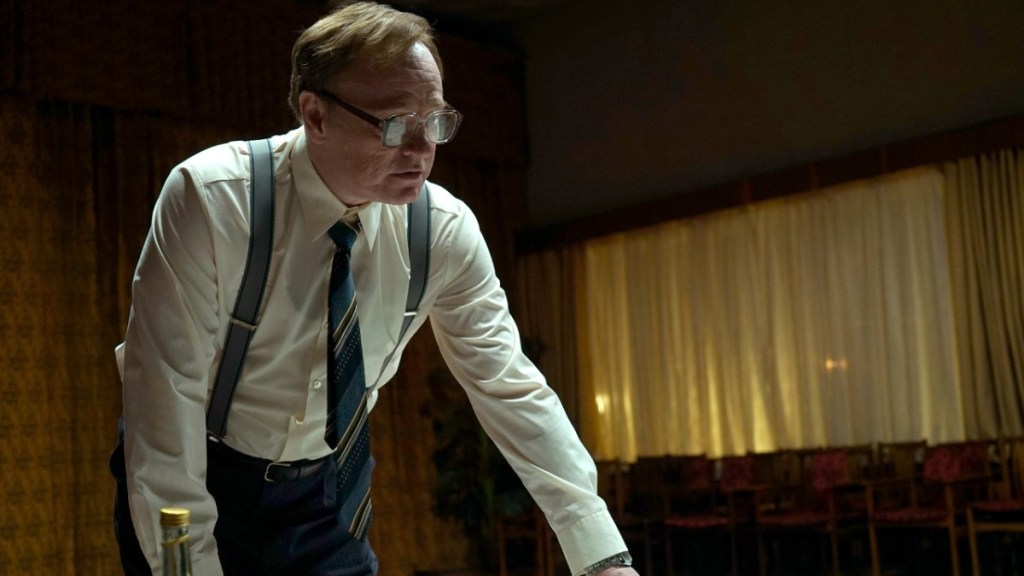
Experts telling inconvenient truths though, are irritants in systems vying to maintain the illusion of absolute control. In Chernobyl, General Secretary of the Communist Party of the Soviet Union Mikhail Gorbachev reminds a committee that Soviet power “comes from the perception of our power.” The Soviet Union was a perfect system, ran the logic, therefore a meltdown at a Soviet nuclear power station was impossible, therefore it didn’t happen.
Chernobyl is the story of experts standing up to that doublethink to save lives. Its timely thesis is contained in an impassioned speech by nuclear physicist Valery Legasov (played by Jared Harris, very much speaking to a 2019 audience): “What is the cost of lies? It’s not that we’ll mistake them for the truth. The real danger is that if we hear enough lies, then we no longer recognise the truth at all.”
Chernobyl shows the extreme personal risk faced by scientists who strove for the truth to be heard over the din of a state cover-up. Like The Salisbury Poisonings, it’s a tribute to the people who clean up after real-world catastrophes.
In Chernobyl’s case, those people were Legasov, Ulana Khomyuk (Legasov was real, but Khomyuk played by Emily Watson was invented to condense the roles of multiple scientists who brought their expertise to bear on the aftermath of the meltdown) and the plant workers, pilots, divers and miners who enacted their solutions.
Legasov and Khomyuk were both specialists in the field of the disaster. Their academic backgrounds had prepared them to formulate a science-led response to the unprecedented power station accident. They were experts who fought to have their expertise heeded by a government determined to deny reality.
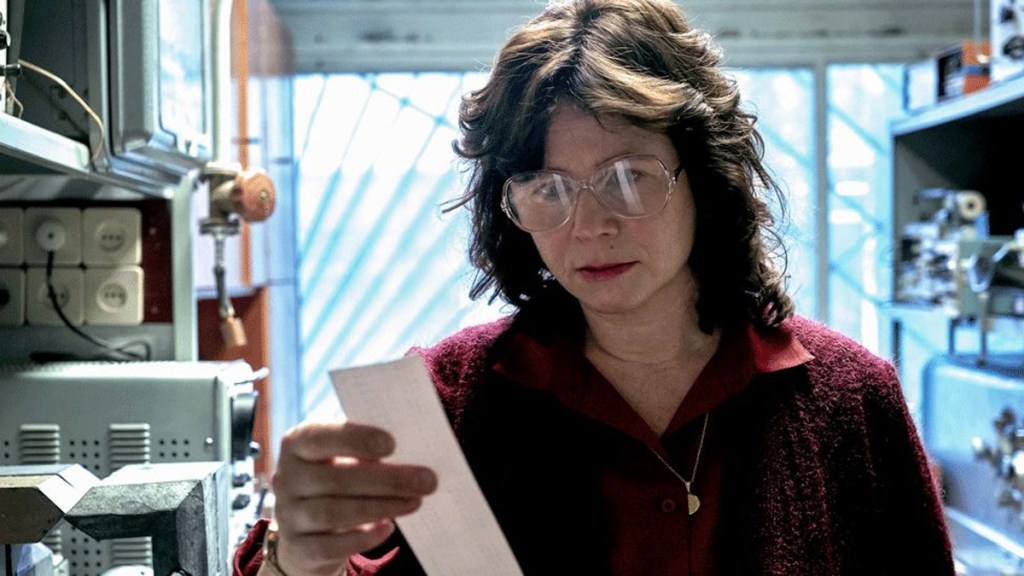
In The Salisbury Poisonings, Wiltshire public health director Tracy Daszkiewicz fights a very different battle. She’s a public servant but not an expert in the science. Her courage isn’t shored up by the certainty of Legasov and Khomyuk that she’s better informed than everybody else. Quite the opposite.
In episode one of the BBC drama, Daszkiewicz (played by Anne-Marie Duff) privately expresses her fears. “I don’t think I can do this,” she tells her husband, “This is just too big, I genuinely don’t think I’ve got the experience.” Her major struggle is internal. When she’s asked by a police superintendent whether she’s ever done anything like this before, wryly she answers that she’ll tell him when she knows what it is they’re doing.
Daszkiewicz’ expertise wasn’t in chemical weaponry, but it was in keeping the public safe. Her sound procedural response to the risk of contamination – transferable skills from her experience of food poisoning outbreaks – saved lives. In The Salisbury Poisonings, Daszkiewicz is shown to have acted fast and thoroughly, with an instinctive understanding of what needed to happen and when.
Her social work background perhaps fed into her people-first, honest approach. In one scene, she immediately defuses the anger of an approaching resident by calmly suggesting a cuppa and giving straightforward information. In another, she sets up a WhatsApp group for the neighbours of the poisoned Russians at the centre of the attack, solving their street access issues in an instant by taking and giving the security services their photographs. These small but crucial measures, alongside the larger vehicle requisitions and town centre closures and cordons, were vital for the people of Salisbury.
Daszkiewicz’ fear of not being up to the task culminates in a scene when, called to her superior’s office, she gracefully withdraws before – as she expects is about to happen – being removed from her position. In a previous scene, fearing widespread panic, Whitehall representatives had stopped her from closing a police station she knew to be a contamination risk to its employees and the public.
Instead of being pushed aside, Daszkiewicz is told that the government advisor has been recalled to London so she can carry on with her job without interference. It’s the anti-Chernobyl, a moment in which professional competence is chosen over the power structure and public relations.
The Salisbury Poisonings is the anti-Chernobyl in a few ways. The former shows a network of professional support boosting the response on the ground, while the latter shows the terrifying weight of a state system buckling individual integrity. As played by Paul Ritter, the Chernobyl nuclear plant’s deputy chief engineer Anatoly Dyatlov is shown endangering lives by refusing to accept the extent of the crisis – doubtless aware of the severity of any eventual punishment. Plant manager Viktor Brykhanov, played by Con O’Neill, also wastes crucial time, desperate to be seen to have the matter in hand and to shift the blame elsewhere.
Daszkiewicz though, in a vastly different political context, has no Gulag to fear and has the personal fortitude to be honest with the public. In scenes made all the more refreshing due to our present crisis, when government briefings and PMQs are characterised by a refusal to admit ignorance or uncertainty despite a daily wealth of both, she tells the truth. There’s a lot they don’t know. They didn’t see the second poisoning coming. They can’t prematurely call their city entirely safe.
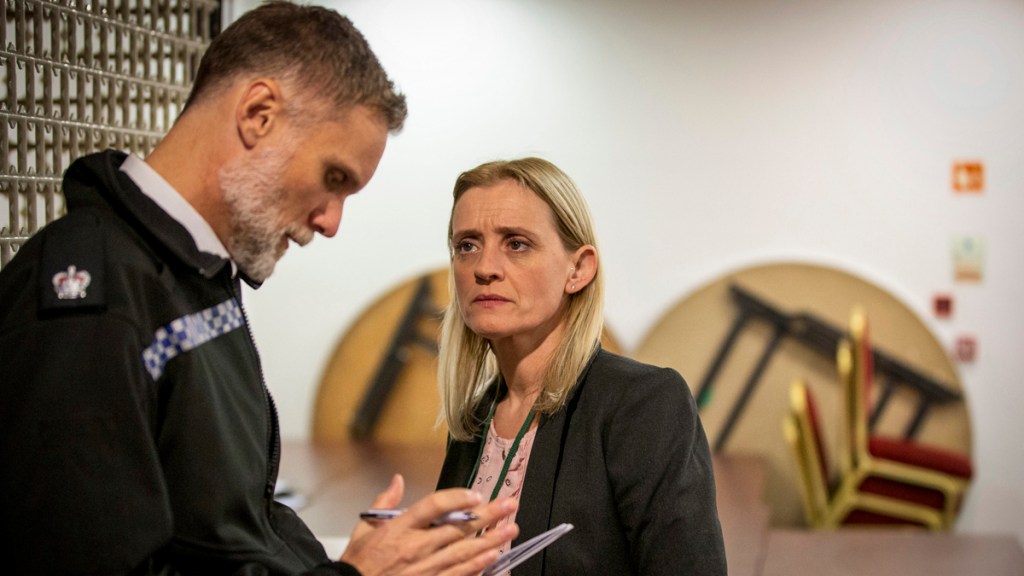
The second poisoning was of Dawn Sturgess and Charlie Rowley, a couple who became accidentally contaminated after finding a perfume bottle containing the nerve agent months after the initial attack. Rowley recovered but Sturgess, a mother of three, died in hospital on the 8th of July 2018. Dawn’s story is told in the moving final episode of the BBC drama, which is dedicated to honouring her memory and correcting lazy assumptions made about her life by the tabloid press.
The episode is illustrative of The Salisbury Poisonings’ focus on the locals affected by the attack, and not on Whitehall or the international spy story. The drama’s makers aimed to turn the camera away from the bench on which Sergei and Yulia Skripal collapsed, and onto the people of the city of Salisbury and the families affected.
The two TV series and the stories they tell are on a different scale, with different aims. Chernobyl is a parable for our age about the value of expertise and the dangers of side-lining truth to suit political narrative. The Salisbury Poisonings is about community solidarity and familial love.
Both though, used drama to clear the proliferation of lies muddying reality, and salute the professional integrity of individuals whose truth-telling saved innumerable lives.
The Salisbury Poisonings is available to stream now on BBC iPlayer.

